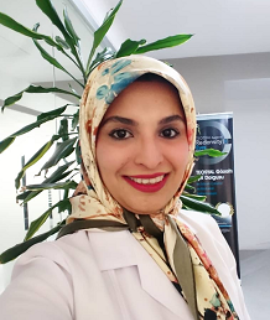Title : Lung cancer and covid-19 pandemic; Where do we stand in precision medicine?
Abstract:
From December 2019, a burgeoning rate of population have been involved in a highly contagious type of severe acute respiratory viral disorder identified with a new type of coronavirus in the Huanan seafood wholesale market of Wuhan, Hubei province, China. Due to the high rate of mortality and morbidity of Severe Acute Respiratory Syndrome related Coronavirus-2 (SARS-CoV-2) infection, needless to say the clinical importance of accurate and early diagnosis, as well as risk assessment especially in cases with predisposition disorders. It has been demonstrated that respiratory disorders play a contributing role in the exacerbated immunopathogenesis of COVID-19. Hence, in order to lessen high clinical and socioeconomical burdens of COVID-19 in immunocompromised patients with predisposition respiratory disorders, it seems that patients with lung cancer should not be underestimated. Patients with lung cancer may have disproportionately severe outcomes related to COVID-19, on the one hand. This point is addressed to more problematic challenges, including overloaded nosocomial infections or comorbidities for hospitalized patients due to attenuated immune responses, falsified diagnosis, losing golden time for accurate diagnosis, and improper therapeutic regimens. These challenges can be more severe in the countries are the epicenters of the pandemic. Additionally, those with lung cancer are prone to COVID-19 with high susceptibility, imposing extortionate expenditure on health system. On the other hand, from immunological aspects, a comprehensive understanding on COVID-19-specific and lung cancer-specific clinical manifestations, and diagnostic approaches make a simplified optimization on risk assessment of both groups of patients. For instance, activated HIF-1 and NF-kB signalings lead to an exacerbated inflammation in COVID-19. Whereas, activated HIF-1 signaling facilitates immune escape and exacerbated tumor growth in patients with lung cancer. Of note, along with a serve lymphopenia, there is an aggravated cancer prognosis in patients with lung cancer (who are majorly immunosuppressed elderlies). Functionally-compromised T cells pave the path for higher incidence of COVID-19 and Acute Respiratory Distress Syndrome (ARDS) in patients with lung cancer. Results of immunophenotyping-based studies showed that aging-associated dysregulated immune responses progress microenvironment toward COVID-19 in elderlies. Notably, an impaired ability of lung DCs to migrate to mediastinal lymph nodes and prime SARS-CoV-specific CD8+ T cells due to aging is a determinant for COVID-19. Totally, inflammaging and immunosenescence can act as a two-edge sword for metastatic dissemination and enhanced susceptibility to COVID-19. Hence, here it is the exact time for immunological evaluations of the patients for clarification of the immune responses that may confer protection or induce adverse reactions to SARS-CoV-2 infection (right patients) in the shortest possible turnaround time (right time). In addition, we should be aware of anti-tumor, anti-neoplastic or chemotherapies that make patient with lung cancer more vulnerable to COVID-19 (right drug).
Conclusion: Screening for cases with lung cancer is of clinical significance for reaching at optimized medical interventions in COVID-19 pandemic. Thereafter, development of optimistic views for more scientific collaboration among Medical Microbiologists, Virologists, Immunologists, Oncologists, Pulmonary Diseases Specialists, Internal Medicine Specialists, Infectious Diseases Specialists, Basic Medical Scientists, Diseases-specific Biomarker Scientists, and Clinical Laboratory Scientists is highly recommended.


